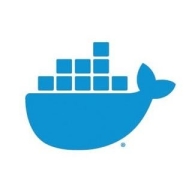

Komodor and Docker compete in the cloud infrastructure management category. Based on feature sets, Komodor has an edge in troubleshooting and real-time data analysis while Docker benefits from superior containerization and broad integration capabilities.
Features: Komodor offers real-time event timelines, Cloud AI for root cause analysis without Kubernetes expertise, and a centralized overview aligning clusters and workflows. Docker provides containerization, portability, and scaling features, with strong security and integration through Docker Swarm, and flexibility in application deployment.
Room for Improvement: Komodor could improve user metrics visibility and alert interfaces while focusing on service interactions and resource optimization. Docker needs better documentation, improved GPU support, enhanced integration with tools like Windows, increased stability, and a more intuitive UI.
Ease of Deployment and Customer Service: Komodor provides responsive support with personalized assistance but time zone differences might affect some users. It supports on-premises and hybrid environments. Docker offers versatile deployment but requires a more intuitive setup for non-technical users, with wide community support adding value.
Pricing and ROI: Komodor’s resource-based pricing is fair but potentially costly at scale. The ROI is significant due to reduced developer hours and operational efficiency. Docker offers a free open-source model with enterprise licensing for dedicated support, maintaining affordability for large-scale deployments.
I can do containerization and share it with every computer, making it work for everyone.
We saw around ninety percent ROI using Komodor.
From what I gather, customer support is great; they are quick and always available to support or help.
I would rate the customer support from Komodor a ten out of ten.
Previously, only one or two applications could run on a server, but now it can handle hundreds of applications, scaling up or down as needed.
A realistic metric I observe is that I can scale services from two to over 20 containers without code changes.
Komodor is very highly scalable in terms of infrastructure and in terms of the number of nodes we use.
Docker has been very stable in my environment, especially once best practices and proper organization were in place.
Docker is a time-tested, proven solution with industry-wide applications.
Docker is excellent for containerization and CI/CD, but it can be improved in areas of built-in security, network simplicity, and observability.
In terms of communication between services, perhaps the configuration within networks between containers could be improved.
There are some features related to the platform that are missing in Komodor, such as Tigera status or CNI pods.
Docker Desktop is free for individual developers and small teams, but a paid subscription is required for large enterprises.
I consider Docker's pricing to be affordable.
Compared with Rancher or any other tools, Komodor is priced cheaply and available at a fair price.
Good security capabilities are included as well, providing image scanning, non-root containers, and minimal base images that reduce the attack surface.
It allows the software to run on various machines without compatibility issues, saving a lot of time.
The most valuable feature is the simple containerization.
One of the best features that Komodor offers is Cloud AI, which debugs all the logs and gives the exact root cause for the issue.
| Product | Market Share (%) |
|---|---|
| Docker | 4.6% |
| Komodor | 3.6% |
| Other | 91.8% |
| Company Size | Count |
|---|---|
| Small Business | 22 |
| Midsize Enterprise | 4 |
| Large Enterprise | 35 |
| Company Size | Count |
|---|---|
| Small Business | 1 |
| Midsize Enterprise | 4 |
| Large Enterprise | 2 |
Docker provides a robust containerization platform, enabling identical environments across machines. With features like portability, fast deployment, and minimal resource consumption, Docker supports development, facilitating multitier architectures and integrating seamlessly with Kubernetes.
Docker offers an advanced containerization solution that enhances application management through automation and security measures. By isolating environments and managing dependencies, Docker supports platforms for scalable application development. Its integration with orchestration tools like Kubernetes and independence from host operating systems enable developers to create lightweight applications effectively. Although known for its cost efficiency and flexibility, Docker could improve in areas such as stability, command-line usability, and Windows performance integration. Users also point out the need for enhanced documentation, simplified management tools, and better persistence storage options, along with stronger marketing and easier user adoption.
What important features does Docker provide?Industries leverage Docker for application packaging, deploying microservices, and CI/CD processes. It supports DevOps, enhances backend service management, and enables resource-efficient development environments. Docker's compatibility with tools such as Jenkins ensures seamless integration and orchestration in modern IT workflows.
Komodor is the missing piece in your DevOps toolchain - offering one unified platform from which you can gain a deep understanding of all of your system events and changes. We integrate with all of your tools, monitor changes and alerts and organize information on a clear digestible dashboard and provide you with the right context at the right time.
We monitor all Container Management reviews to prevent fraudulent reviews and keep review quality high. We do not post reviews by company employees or direct competitors. We validate each review for authenticity via cross-reference with LinkedIn, and personal follow-up with the reviewer when necessary.